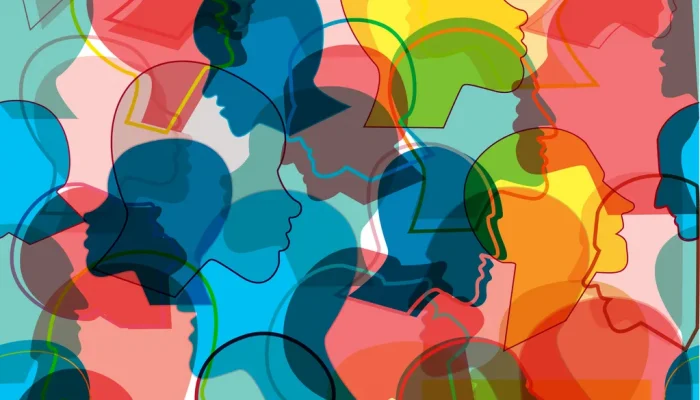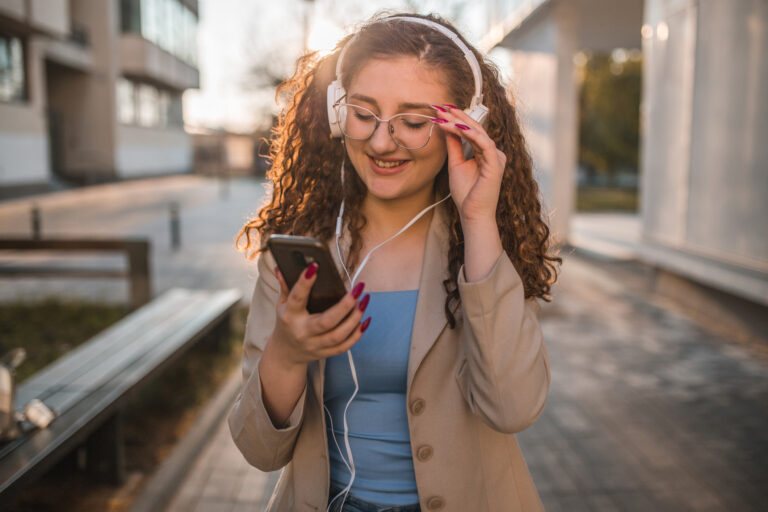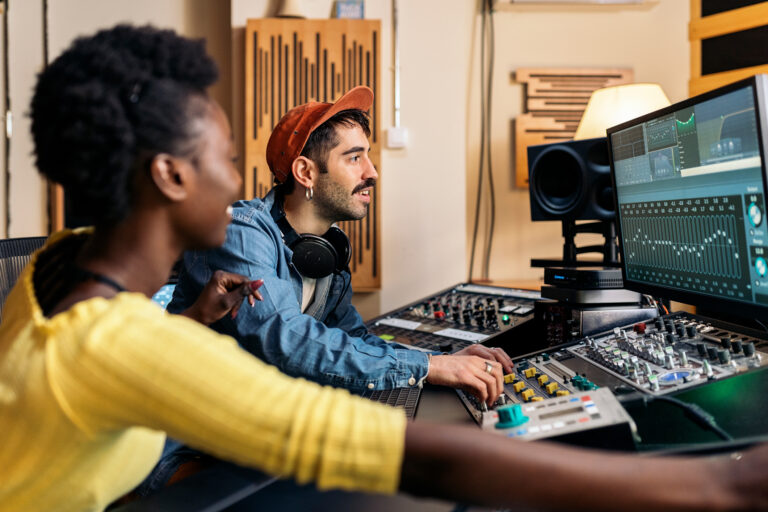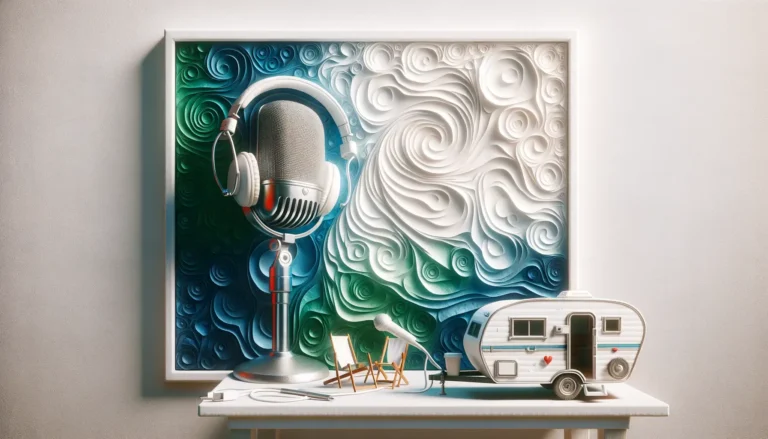By Pacific Content producers Wanyee Li & Rehmatullah Sheikh
“Are they a good talker?”
It’s a loaded question. And it’s one both of us think about a lot, as producers.
Sometimes, people love stories that introduce us to new worlds. Other times, people want to hear their world reflected in a story.
I’m Wanyee Li, a story producer at Pacific Content.
I’m Rehmatullah Sheikh, a story producer at Pacific Content.
Our worlds are filled with people speaking English in different accents.
That’s the world we want to represent in the stories we tell.
And in many cases, that’s the world our clients see too.
We asked Solana Larsen, editor of Mozilla’s Internet Health Report, for her thoughts.
“Including guests with different accents in a podcast is like photographing in colour instead of monochrome. It’s a truer reflection of the world and far more interesting for the ears,” she said.
Pacific Content is producing Season 6 of IRL, which is doubling as Mozilla’s Internet Health Report.
As producers at PCC, we spend our work days finding the perfect guests for the podcasts we make for brands. What makes for a perfect guest differs depending on the podcast — sometimes it’s an expert, sometimes it’s someone with a dramatic personal story — but there is often one golden rule: they must be a “good talker.”
Let’s consider how this plays out in Home.Made., an award-winning original podcast we produce for our client Rocket Mortgage.
Hosted by Stephanie Foo, the show uncovers the meaning of home through stories of people in profound and, at times, bizarre circumstances who are looking for a sense of belonging.
There’s usually just one guest whose voice takes the listener on an epic journey of finding a home. So all eyes, or in this case, all ears, are on this person’s ability to tell their story — and to tell it well.
Basically, the guest has to be a “good talker.”
One of the guests I (Rehmatullah speaking here) pitched for Home. Made. was Jean Wilson. Jean was one of the seamstresses who worked on the spacesuits worn by Neil Armstrong and his team on the Apollo 11 mission. I promised my showrunner that she was a good talker. After all, she had a great story to tell. Jean is a Black woman in her eighties. Her voice is hoarse but confident. She speaks with a Southern lilt.
My team hesitated when they heard Jean speak. Would listeners find her easy to understand? Was she the right guest for the show? Was she a “good talker?”
So, what unspoken nuances come with the term, “good talker”? How do we curate a diverse group of guests on the show while ensuring listeners have a good experience? And why is it worth going through all this trouble anyway?
These are the questions we will address in this post.
In the United States and Canada, there is a specific type of English that is typically considered broadcast worthy. A specific type of voice.
This voice is authoritative. This voice is easy to understand. This voice is familiar.
This voice has a so-called “neutral” accent.
This accent is often referred to as General American or standard American. But linguists and accent coaches agree that General American is an idealized accent that isn’t actually from any particular region of the country. In other words, it’s completely made up. Yet, this is the type of English accent that people around the world and immigrants learn when they take accent-reduction classes. If English is not your first language, speaking it in a way that resembles the General American accent as closely as possible is often the goal — even though no one in the U.S. speaks that way.
Meanwhile, other accents deemed broadcast-worthy are not made up, but rather represent a particular social class.
In the UK, the term “BBC English” is sometimes used to describe the accent you typically hear on the national broadcaster’s airwaves.
This is the “posh” accent your favourite Hollywood villain has and the accent much of the Downton Abbey cast takes on. This accent is generally associated with intelligence and upper social class.
The BBC’s pronunciation linguist, Dr. Catherine Sangster said in a 2014 post that the fact that announcers and newsreaders had this specific accent “was a by-product of the restricted social group from which BBC employees were drawn rather than a matter of deliberate policy.”
It was not deliberate. But it matters.
People often think being a “good talker” requires some proximity to these accents and ways of speaking. Favoring a particular type of English for your podcast, even if it’s not intentional, can make many listeners feel like they are not being represented.
The majority of people who speak English have neither BBC English nor a Standard American accent. Most of us English speakers learned the language as a second or third, or even fourth language.
“Only 400 million of us were born into the English language,” said Heather Hanson, in a 2018 Ted Talk. “Compare this to the 2 billion voices who have had to learn [English] in the classroom. Right now, in our world today, we have five times more voices that stand out than fit in.”
And even if English is their first language, they might have grown up in a community where it is spoken differently.
Let’s find a way to include these voices.
As podcast producers, we recognize it can feel safer to book a guest who ticks all the boxes of a traditional “good talker.” We are competing for listeners’ dwindling attention spans, after all. The last thing we want is for them to drift off and switch to another show. So why not cast guests with that sought-after “neutral” accent?
Podcasts give listeners the time and space to meditate on people’s voices and let them grow on us. We’d argue there’s merit in featuring guests not despite their accent, but because of it.
People from different cultures who think, dream and converse in languages other than English can be incredible sources of knowledge, giving us insights into things we’d otherwise not known, had we gone fishing for a “good talker.”
While making the podcast For The Love of Work, I (Wanyee speaking here) booked the Head of Design at DoorDash, Helena Seo, for a segment about emotional intelligence in the workplace. Helena was a perfect fit for the show, as she explained how a Korean concept she grew up with called noon-chi helped her immensely as a people manager at DoorDash. Does she speak English with a General American accent? No. Can you tell English is not her first language? Yes. But that did not take away from her ability to share valuable insight about leadership skills in the workplace.
Podcasts are an opportunity to bring more people into the mainstream fold of storytelling. It’s also an opportunity to help more people feel like their stories are worth being told.
Remember, many of our clients tell us they want their podcast to speak to new audiences — folks who, up until now, did not see, or hear, themselves in those stories. This means featuring voices we don’t normally hear on air.
The good news is this is all very doable. With some production know-how, we can feature diverse voices on award-winning podcasts, all while earning listeners’ ears.
It’s our job as producers to set guests up for success while making a podcast that people want to listen to. Here are some ways you can do that.
- Provide a few sample questions to guests in advance of the interview to help them feel and sound more confident.
- Hire sound designers who are experts at editing dialogue in a way that makes guests sound polished, but like themselves.
- Spend extra time making small talk before starting the interview. This helps multilingual people warm up as they switch from another language to English.
- If the guest’s accent is difficult to understand, play a few seconds of the clip, then let the host paraphrase the rest. This provides the listener with context and lets them hear the guest speaking in their voice, without sacrificing clarity. This is what our team did in the award-winning podcast, Teamistry, in anepisode about the Thai cave rescue, when it featured Narongsak Osottanakorn, the former Governor of Chiang Rai province on the show.
- If you choose to dub a guest, explain to the listener why you made this choice. This prepares listeners and helps them understand why they will be hearing a voiceover.
- Kerning Cultures, touted as the “This American Life” of the Middle East, often takes this route when interviewing guests from the Middle East and North Africa — and who may not speak English as a first language. Here is one of our favorite examples, in an episode about child refugees in Sweden.
Final Thought
Be careful when you ask for a guest who is a “good talker.” The term sometimes carries a meaning that may not ultimately serve your podcast’s goals. Featuring a range of voices in your podcast helps you reach new audiences and include more people in a client’s brand’s story. That’s why it’s a win for clients. It’s also a win for producers like us, who want to make podcasts that represent the world we live in.
And remember Jean Wilson, the seamstress who sewed spacesuits for the Apollo 11 astronauts? You can hear her telling her story on Home. Made. in the episode called One Thread at a Time. It’s one of our favorites.
Sign up for the Pacific Content Newsletter: audio strategy, analysis, and insight in your inbox.




